by staff | Feb 22, 2018 | Alcohol Addiction, Alcoholism, Celebrity, Gabriel Byrne, Recovery, Sobriety

Most people who own a television have probably seen Gabriel Byrne at work, but just in case you haven’t, go watch The Usual Suspects. In fact, if you haven’t seen that movie in a few months, go watch it again. Totally worth it. Or you may recognize him from one of many other roles, including:
- Stigmata (movie)
- End of Days (movie)
- Vikings (series)
- Marco Polo (series)
Gabriel Byrne is Irish born actor who has also a grown into a successful film director, film producer, writer, cultural ambassador and audiobook narrator. Since the beginning of his acting career in 1979, he has struck the silver screen and small screen a multitude of times with powerful and intense performances.
He won a Golden Globe Award back in the HBO drama In Treatment, which aired from 2008 to 2011. That role also earned him nominations for various other awards.
But just last week the 67-year-old actor accepted another awesome honor- a lifetime achievement award from the Irish Film and Television Academy (IFTA). The following night, he took the time to reflect on what he considers one of his biggest victories– his 21 years of recovery from alcohol.
Gabriel Byrne on Drinking and Recovery
During an interview on Ireland’s The Late Late Show,
“I think like a lot of people, I drank to escape from myself and to escape from the pressure that I felt around me. But I knew that I could never handle it, I was absolutely allergic to it. It was not a good thing for me to do.”
He continued,
“With this lifetime achievement thing, it’s not about the work, it’s of a life and one of the biggest victories to me in my life was that personal one of stopping that and saying I’m not going to be that person anymore.”
But Gabriel Byrne didn’t stop with discussing his own issues with alcohol. He also spoke about his feeling toward the culture in Ireland which endorses drinking.
“That kind of thing became to me kind of frightening because my drinking was spiraling into a place where I couldn’t remember what I did.”
“One day I woke up and said, ‘If I don’t stop this, I am going to die.’”
Byrne admits that it took him a long time to be brave enough to admit he had a problem and needed help. His agent of 30 years, Teri Hayden, was instrumental in getting him the help he needed. She was the first person he went to for help. Describing walking into a room full of strangers looking for help with his drinking Gabriel Byrne says,
“It was the most difficult thing I’ve ever done.”
After over two decades in sobriety, it seems Gabriel Byrne seems committed to his work as both an actor, an activist and an advocate for recovery. He also acknowledges that a lot has changed since he left Ireland for the United States, adding that he is actually encouraged by how the culture is shifting. He is happy to see now that it is no longer strange in Ireland for people to recognize their drinking problems and ask for help.
We love sharing celebrity recovery stories because they remind us that anyone can be impacted by addiction. Actors, artists and musicians often experience the same devastation that can be caused when drugs take hold of their lives, and their stories of overcoming fear and stigma to get help can be inspiring. Everyone might not have access to the same resources as celebrities, but there are still effective treatment options. If you or someone you love is struggling with substance abuse or addiction, please call toll-free now. We want to help.
CALL NOW 1-888-922-5398
by Justin Mckibben | Jan 22, 2018 | Donald Trump, Drug Abuse, Drug Policy, Law Enforcement, News, War on Drugs
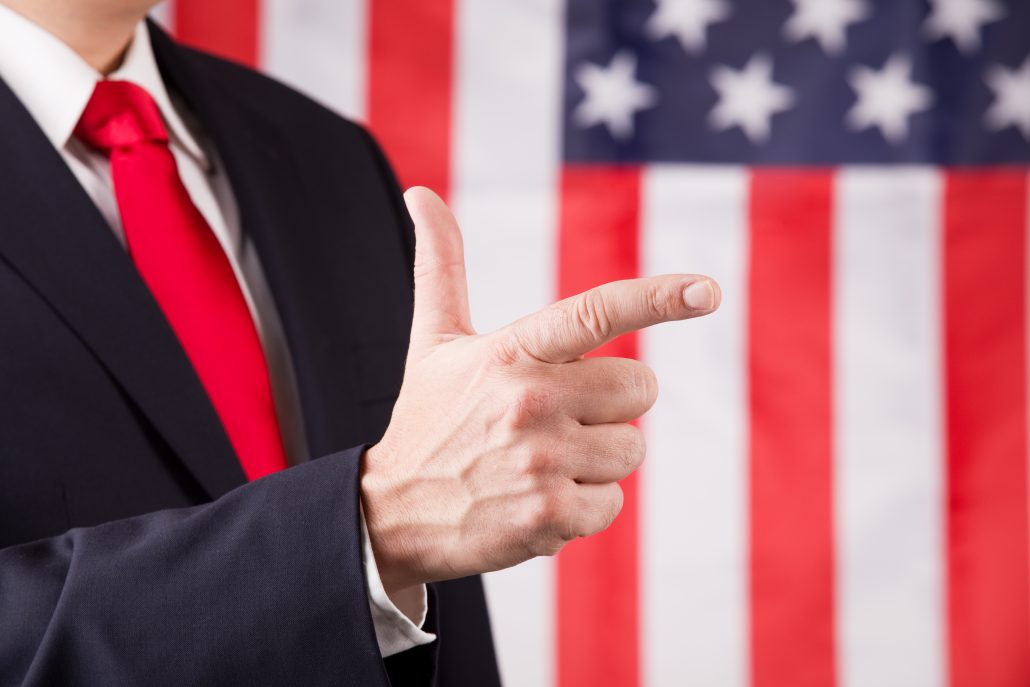
For the last few years federal politicians, local officials, and addiction advocates have spoken a great deal about the critical condition of the opioid crisis in America. Just a few months ago President Trump declared the opioid epidemic a public health emergency, and his administration had created a special White House Opioid Commission to do extensive research and community outreach to try and better understand the problem and offer possible solutions.
Now recent reports state that President Donald Trump is actually planning to cut the budget of the Office of National Drug Control Policy.
The Office of National Drug Control Policy (ONDCP) just happens to be the top office responsible for coordinating the federal response to the opioid crisis. This plan is being noted as his administration’s second attempt to gut the ONDCP, so how would this change the current system?
What is the Plan?
So what does this mean? If President Trump were to go forward with this proposal, it would shift the office’s two main grant programs. These are:
- The High Intensity Drug Trafficking Areas grant
- The Drug Free Communities Act
According to POLITICO, multiple sources in the administration and others working with the government on the opioid crisis said those resources would then be given respectively to:
- The Justice Department
- Health and Human Services Department
According to a document from the Office of Management and Budget, this proposal would cut 95% of the ONDCP’s budget. Officials in President Trumps administration say that the approximately $340 million in grants will be administered by larger agencies. But the ONDCP will still serve as the White House’s drug policy shop. But the ONDCP will still be the main resource for President Trump for drug policy.
According to the proposal, President Trump and his administration believe these programs are just duplicates of other initiatives. This cut would also result in the ONDCP losing up to 33 employees. Skeptics say taking these resources leaves the policy office with little power or purpose.
Some Support President Trump Plan
Not everyone believes this is a bad idea. Some advocacy organizations are cautiously optimistic that changes to the ONDCP could actually end up being a good thing. One of them is the Drug Policy Alliance. They believe the opioid epidemic has continued to get worse under the ONDCP, and that maybe a shift in perspective is necessary to make a difference.
Grant Smith, deputy director of national affairs for the Drug Policy Alliance states,
“The reality is that ONDCP is an agency in dire need of reform,”
Smith believes that the particular grant programs mentioned previously “are a phenomenal waste of money that contribute to the incarceration and stigmatization of drug users.”
They are also afraid President Trump would use a more powerful Drug Czar to aggressively treat drug abuse as a criminal justice issue rather than as a public health problem. If so, it might be a good idea to take the power of these grants out of the executive branch’s control.
Some believe the ONDCP won’t be particularly helpful for the future of drug policy due to some of the organizations part positions, such as denying medical use of marijuana or encouraging the expansion of workplace drug testing. There have been stories questioning the 24-year-old deputy chief of staff President Trump appointed to head the ONDCP. Some see having an individual with no drug policy experience running this important agency as an indication of inconsistnecy.
Supporters of moving the grants and cutting the ONDCP say it would decrease overlap since the DOJ already works on drug trafficking and HHS also has substance use prevention. This may not be the worst assumption either, considering that President Trump and his administration have touted a law-and-order approach that has many concerned about further stigmatizing and punishing those in need of help.
An OMB spokesperson stated,
“DOJ and HHS are both major grant management organizations that can look holistically at allocations across law enforcement and drug prevention and treatment resources.”
So some are hopeful it could just put the grants under a different roof. But critics say these programs are working, and it is hazardous to try and dramatically restructure them at such a desperate time.
Other Republicans Rebuke the Plan
Health policy experts, lawmakers, and even fellow Republicans are unhappy with this latest proposal. Some even say this is just one example of a series of actions showing that President Trump’s administration isn’t serious about addressing the opioid epidemic.
Last year the White House Office of Management and Budget proposed completely cutting these grants. However, that proposal was met with intense resistance from both Republican and Democratic lawmakers. Now, health experts and officials from both sides are speaking out against this plan. Regina LaBelle, who served as ONDCP Chief of Staff during the Obama administration, states:
“I’m baffled at the idea of cutting the office or reducing it significantly and taking away its programs in the middle of an epidemic,”
Many are already expecting lawmakers to push back again against this plan from President Trump.
Republican Senator Shelley Moore Capito from West Virginia, a state ravaged by opioids, told POLITICO she will “resist that move”. Capito also says she believes the grants should be kept at ONDCP. This would keep them within the executive branch and under the president’s purview.
Republican Senator Rob Portman from Ohio, another state that has been hit hard by the opioid epidemic, said he also plans to fight back against the proposed cuts. Portman says the anti-drug programs the administration wants to cut have done an immense amount of good in Ohio.
Going Against Opioid Commission
President Trump established the White House Opioid Commission to make recommendations on addressing the opioid crisis. Now even advisors on this panel are saying this new move goes against the opioid commission’s recommendations.
Former Representative Patrick Kennedy, a member of the opioid advisory commission, said the panel advised President Trump to fortify the ONDCP, not defund it. The opioid commission had also endorsed both of these grants as crucial to overall response efforts. Kennedy went on to say,
“It guts the two main purposes of ONDCP… It really undermines the mission.”
So there are those that think changing the ONDCP could be a necessary sacrifice to make progress. However, others are concerned that it is not the right move, and definitely not the right time.
We should note that the proposal from President Trump is subject to change. There is still more time to learn about how moving money from the Office of National Drug Control Policy could impact the governments work against the opioid crisis. Could this change refine the process of accessing these grants? Or could it cripple an important agency for fighting addiction during of one of the country’s worst drug outbreaks? Hopefully, these changes can be managed in a way that creates new opportunities instead of removing them.
Providing support and life-saving resources is vital to overcoming addiction. Every day people are struggling with drug or alcohol use disorders, and some of them never find the help they need. Safe and effective addiction treatment is one of the best tools we have. If you or someone you love is struggling, please call toll-free now. We want to help.
CALL NOW 1-888-922-5398
by Justin Mckibben | Jan 8, 2018 | Donald Trump, Drug Policy, Law Enforcement, Marijuana, News

Last week we reported on the story of President Trump’s Attorney General Jeff Sessions rescinding a marijuana memo from the Obama administration that established a policy of refraining from federal interference with state laws concerning marijuana use. Once the announcement hit the internet, people from all sides of the argument began chiming in with either praise for the “rule of law” stance of this administration, or adamant opposition of this new policy that essentially reignites the “war on weed” in America.
This announcement came only days after the state of California had officially enacted the legalization of recreational marijuana. Needless to say, the conversation has not yet been dismissed. One voice came from the American Civil Liberties Union (ACLU).
American Civil Liberties Union VS Sessions
For some background, the American Civil Liberties Union is a nonpartisan, nonprofit organization with a stated mission:
“to defend and preserve the individual rights and liberties guaranteed to every person in this country by the Constitution and laws of the United States.”
The ACLU has over one million members and works through litigation and lobbying while providing legal assistance in cases when it considers civil liberties to be at risk.
In response to the news of Jeff Sessions rescinding the Obama-era policy for a hands-off approach to legal marijuana states, the deputy director of the American Civil Liberties Union, Jesselyn McCurdy stated:
“Criminalizing marijuana may be a priority for Attorney General Sessions—who has spent decades using bad science to push his own regressive agenda—but it is not a priority for the American people, 52 percent of whom support legalization. Rescinding this guidance is yet another example of how this administration’s ‘law and order’ philosophy is deeply out of touch with most Americans. With today’s decision, the Department of Justice is essentially telling at least six states and the District of Columbia that they are not entitled to govern as they see fit when it comes to drug policy. For politicians who purport to believe in ‘small government’ and states’ rights, this is a wildly incongruous move.”
Later on in the statement, McCurdy concludes,
“The War on Marijuana, like the War on Drugs, has failed by almost every measure—with the exception of successfully destroying communities of color. Marijuana criminalization negatively impacts public housing and student financial aid eligibility, employment opportunities, child custody decisions, and immigration status. Today’s decision furthers entrenches the country in racially biased, fiscally irresponsible, and morally wrong drug policy—and the ACLU will continue to fight it.”
And the ACLU is most definitely not alone in this mindset. Both Democrats and Republicans are openly criticizing this shift, with some like Senator Cory Gardner promising to oppose it at every opportunity.
Compassion Not Punishment
The backlash from this most recent decision from Jeff Sessions has come from all directions. Pretty much every publication and news outlet has covered this controversial move. As of now, there is no definitive answer as to how this policy change will impact those states where medical marijuana use is legal, or how it will impact the recreational marijuana industry.
But despite the fact that marijuana has become increasingly supported for medicinal use across the country, with many advocating for recreational use as well, the reality remains that drugs can still be abused, regardless of their legal status.
According to the National Institute on Drug Abuse (NIDA), marijuana use can lead to an individual developing problems known as marijuana use disorder. Data from recent studies research suggests:
- 30% of those who use marijuana may have some degree of marijuana use disorder
- Use of marijuana before age 18 makes someone 4-7 times more likely to develop marijuana use disorder
The NIDA also states that marijuana dependence occurs when the brain adapts to large amounts of the drug by reducing production of and sensitivity to its own endocannabinoid neurotransmitters. In 2015:
- About 4.0 million people in the United States met the diagnostic criteria for a marijuana use disorder
- Only 138,000 voluntarily sought treatment for their marijuana use
So while some may still experience difficulties due to their use of marijuana, the focus should still remain on support and assistance through compassionate care and treatment, not punishment. Regardless of whether you support the decision of the attorney general, or if you stand with the American Civil Liberties Union and other legalization advocates, you can support compassionate and comprehensive treatment for those who do struggle with substance use disorder.
Marijuana use disorder is a real condition for some people. If you or someone you love is struggling with a substance use disorder, such as chemical dependency or addiction, please call toll-free now to speak with a specialist today. We want to help!
CALL NOW 1-888-922-5398
by Justin Mckibben | Jan 4, 2018 | Addiction Stigma, Donald Trump, Drug Abuse, Drug Policy, Law Enforcement, Marijuana, News
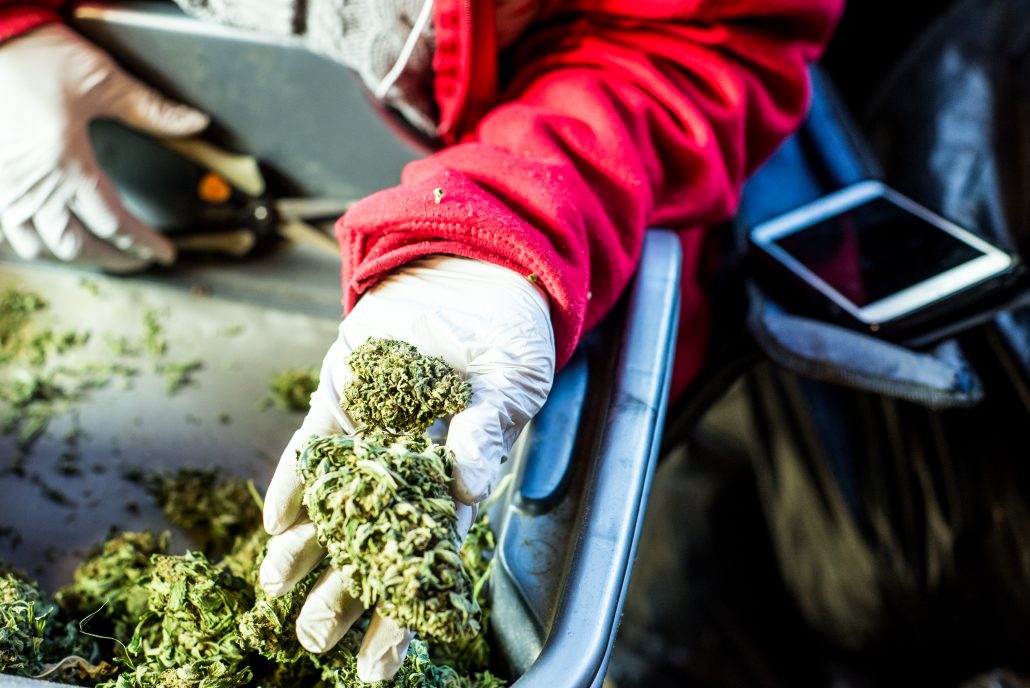
Before the hype around recreational use of marijuana in California could even begin to dwindle, new reports are stating that President Trump’s Attorney General Jeff Sessions is planning to begin a federal crackdown on marijuana laws.
Jeff Sessions is set to announce today that he is rescinding memos sent out from the Obama administration that established a policy of non-interference with state laws concerning marijuana use. For some time now there have been several stories highlighting Jeff Sessions’ disagreement with allowing states to decide their own laws concerning medical or recreational marijuana use. Some sources indicate he has been planning a new strategy that will actually bring federal law to a head against state marijuana policies.
UPDATE: According to The Washington Post, Jeff Sessions notes in a memo sent to U.S. attorneys that federal law prohibits the possession and sale of marijuana. Sessions undid four previous Obama administration memos that advised against bringing prosecutions in states where marijuana was legalized to use for recreational or medical purposes. Sessions said prosecutors should use their own discretion in weighing whether charges were appropriate.
So what does all this mean for marijuana states?
The Obama Era Policy
The memo essentially describing the Obama-era policy through the Justice Department is known as the “Cole Memo”. It was named after then-Deputy Attorney General Jim Cole in 2013.
The “Cole Memo” outlined new priorities for federal prosecutors in states legalized use of marijuana. These shifts in policy represented a major change from the strict enforcement approach of past administrations to an attitude of non-interference. Back in 2014 U.S. Congress approved legislation preventing the DEA from carrying out any raids, arrest, or prosecutions of patients using medical marijuana. Congress also blocked law enforcement agencies under the Justice Department from consuming federal dollars in efforts to enforce federal marijuana laws in states that have legalized the use of medicinal marijuana. Under President Barack Obama, the Department of Justice did not pursue action against states that legalized recreational marijuana use. In 2015 there was a bipartisan effort in Congress to block the DEA from using federal funding for aggressively pursuing marijuana in the states where it was legalized.
The Obama era outline essentially allowed states to decide whether or not to legalize marijuana and to what extent. The federal prosecutors would not intervene as long as the state regulations did not threaten other federal priorities. So the distribution of marijuana to minors and cartels was still prohibited.
So with this announcement, many are wondering if Jeff Sessions will be working to undo other changes as well.
The Jeff Sessions Reversal
At the time of writing this article, whether or not Jeff Sessions will offer up a new strategy for dealing with marijuana-friendly states or not has yet to be seen. At this time the great concern is how this announcement may end up putting state and federal law in conflict, and what to expect out of enforcement from the federal government.
But many say this is a frustrating development, especially considering that President Trump has said in the past that he would not allow his attorney general to change the current policy, telling a reporter that,
“I’m a states person. I think it should be up to the states, absolutely.”
If we go back to February of 2017, Sean Spicer suggested in a press conference that the Trump administration and the Justice Department already had the intentions to no longer turn a blind eye to states with their own legal marijuana laws. At the time Spicer said the Trump administration would be “taking action” against these states. Contradicting all the talk of states’ rights and rolling back federal enforcement.
Many are wondering if President Trump was consulted about this decision, or if he has been made aware of the implications of this change. Especially since it goes against his original campaign promise to leave marijuana laws to the states.
This move would lay the groundwork for the federal government to begin a crackdown on the rapidly increasing marijuana industry all across the country. If these reports are confirmed this afternoon with no new innovations in their place, this move could have a drastic impact on the economics around the marijuana industry.
Sessions Track Record
However, this should all come as no surprise, since Jeff Sessions has repeatedly spoken out against decriminalization of marijuana and a return to the failed tactics of the War on Drugs at every turn.
In fact, a key adviser on marijuana policy to Jeff Sessions, Dr. Robert DuPont, believes drug testing should be a routine part of primary-care medicine. He has gone as far to suggest that primary-care physicians should be given the power to force some patients into treatment against their will. DuPont also suggests the following treatment to subject individuals to monitoring and random drug tests for up to 5 years.
Dr. Robert DuPont was among a small group of drug-policy experts involved last month in a closed-door meeting with Sessions to discuss federal options for dealing with the rapid liberalization of state marijuana laws.
The Marijuana States
Eight states and the District of Columbia have laws allowing for personal consumption of marijuana for recreational purposes. 28 states and the District of Columbia have legalized marijuana for medical use. Even more states recently have begun to talk about changes in their own policies. California voters pushed through legislation to legalize recreational use back in November of 2017, and with the start of the New Year, those laws went into effect. Now, not even a week later, the fate of this state’s new policy is hanging in the balance.
Needless to say, marijuana advocates all over the nation are troubled by this news. According to NORML Political Director Justin Strekal,
“If the Trump administration goes through with a crackdown on states that have legalized marijuana, they will be taking billions of dollars away from regulated, state-sanctioned businesses and putting that money back into the hands of drug cartels,”
But some states are not ready to give up on their marijuana laws. Other Republicans, such as Colorado Senator Cory Gardner, are avidly speaking out in opposition to the recent decision by Jeff Sessions. Senator Gardner has vowed to prevent any new appointees for the Department of Justice from being confirmed until this reversal has been reversed.
Hopefully, when Jeff Sessions makes his official announcement, we will have some more clarity on how the federal government plans to address marijuana use going forward.
Marijuana Abuse
While the legal status of marijuana may soon be up for a serious debate, the fact remains that it is still possible to abuse marijuana. Whether a drug is legal or not, there are still risks. There are already plenty of legal drugs that cost thousands of lives every year. When substance use becomes habitual it can be extremely harmful to an individual who struggles with substance use disorder. Even though marijuana is not claiming lives like the opioid epidemic, for some it has adverse effects on the quality of life.
While marijuana is not considered to be as dangerous as other illicit drugs, such as heroin or methamphetamines, it can cause dependence for people who use the drug. The typical consensus that marijuana is not as physically destructive and addictive as other “harder” drugs doesn’t change the fact that psychiatrists also believe the psychological impacts of a substance do matter when talking about an addiction. These effects can be just as detrimental.
Marijuana addiction treatment offers a safe and secure environment while providing a variety of therapeutic opportunities to help develop a healthy lifestyle without relying on the use of marijuana or other drugs.
There still needs to be resources available to help people who suffer from abuse. Supporting addiction recovery means breaking the stigma and offering holistic and effective solutions. Palm Healthcare Company is here to help. If you or someone you love is struggling, please call toll-free now.
CALL NOW 1-888-922-5398
by Justin Mckibben | Jan 3, 2018 | Addiction, Addiction Treatment, Donald Trump, Drug Abuse, Drug Policy, Dual Diagnosis, Family, Fentanyl, Inpatient Treatment, Law Enforcement, Mental Health, News, PAARI, Prescription Drugs, Professionals, Recovery, Sobriety, Stigma, Synthetic Drugs

With the beginning of the new year, Palm Healthcare Company is looking forward to helping spread more exciting stories of experience, strength, and hope while also sharing important news stories and exciting new developments that relate to the world of addiction recovery and substance use disorder treatment. As we commit ourselves to another year of fighting alongside thousands of people working toward a better future, we would also like to take some time looking back on all the big moments in 2017 that we shared with our Palm Healthcare Company Blog.
-
President Trump Declares Public Health Emergency: What’s the Plan?
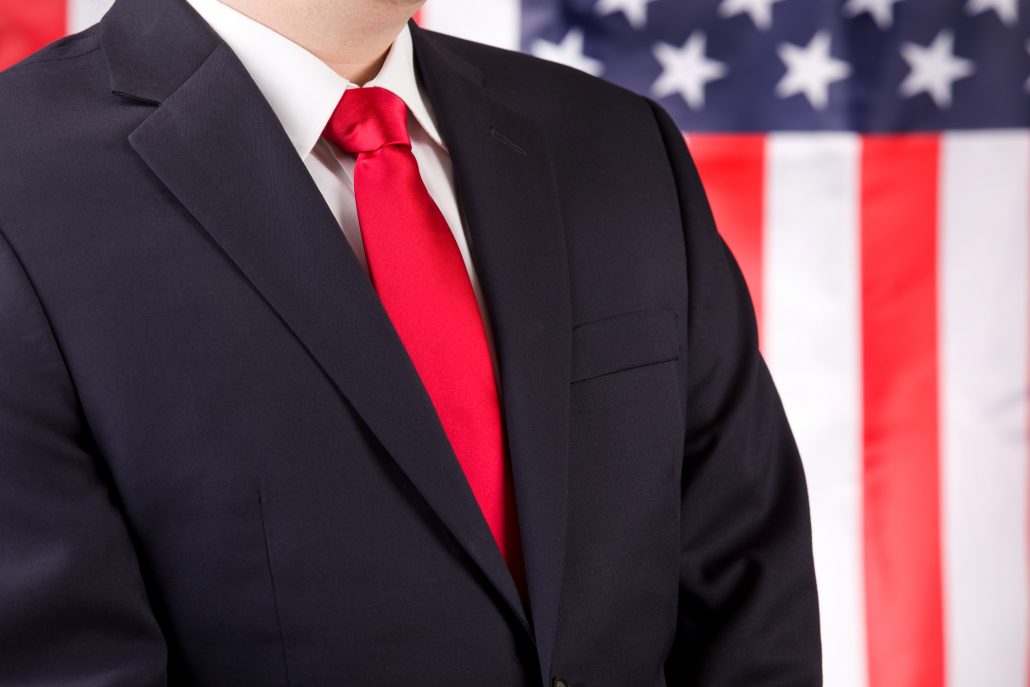
October of 2017, President Donald Trump made an announcement declaring the opioid crisis in America as a Public Health Emergency. This highly anticipated declaration was delivered in a way slightly different than many had expected, noting the technical differences between a Public Health Emergency and a National Emergency.
Many advocates were concerned that this announcement did not provide a concrete foundation for the necessary federal funding and did not initiate much-needed action, but others we assured that this means the Trump administration was taking this issue very seriously. In this article, we took a look at what this announcement did actually accomplish, and what it failed to deliver on.
-
Racketeering for Fentanyl: Opioid Maker Insys Founder Arrested for Bribes
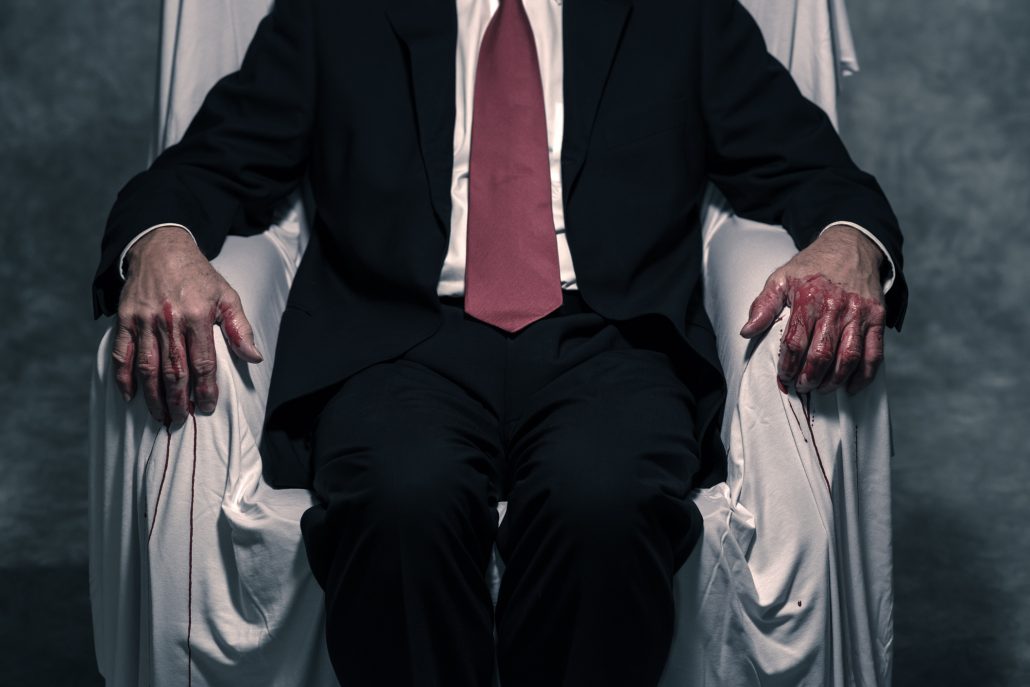
A huge development to another story came in late 2017 when John Kapoor, former CEO of Insys Therapeutics and founding father of one of the most prominent opioid manufacturers in the country, was arrested and charged with conspiring to push the signature drug of Insys Therapeutics, a Fentanyl spray called Subsys, for unacceptable uses through bribes and kickbacks.
The Palm Healthcare Company blog notes how back in 2016 the Justice Department reported to be charging 6 former executives and sales-managers of Insys Therapeutics for conspiring to defraud health insurers.
When looking at the details in this story, it has intensified the conversation about Big Pharma involvement in the epidemic
-
Can Kellyanne Conway Really Compete with the Opioid Crisis?

Not too long after President Trump’s declaration of a Public Health Emergency pertaining to the opioid crisis, Kellyanne Conway was announced as leading the charge on the White House’s efforts for addressing the opioid epidemic.
This Palm Healthcare Company blog saw a lot of comments!
While some find that having a high-profile figure at the head of the efforts gives validity to the White House’s commitment to solving the opioid issue in America, many others are speaking out in frustration. Those in opposition to this appointment say that while she may be useful as a counselor or pollster, she has no experience of expertise when it comes to drug abuse, addiction or substance use disorder treatment.
Thus far the one thing both Kellyanne and the President seem adamant about is a media campaign, but advocates are still afraid this is more “Just Say No” and not enough support for effective resources.
-
After Las Vegas Shooting: PTSD and Mental Health Must be Priority

In early October of 2016, the nation was shaken to its core when Las Vegas had one of the deadliest shootings in modern American history. This horrific tragedy flooded newsrooms and live viral footage with the country watching in shock as a gunman killed 58 people and injured 546 more at an outdoor music festival.
In the aftermath of this terrible and heartbreaking incident, our Palm Healthcare Company blog took a look at how such traumatic experiences impact people, and about the importance of those who struggle with Post-traumatic Stress Disorder (PTSD) getting proper diagnosis and care.
At a time when so many people are self-medicating with dangerous or even deadly narcotics, it is important to care for those most vulnerable, especially after such an earth-shattering experience.
-
Police Helping Addicts into Treatment is a Growing Trend Saving Lives

In August of 2017, we took a look back at several programs that had come to light all over the country based on Police Departments working with their communities to offer drug users the chance to get help with addiction treatment instead of being arrested and charged.
The pioneering program came from Gloucester Police Department in Massachusetts back in 2015. This program allowed users to ask police for help, and told addicts they could submit drugs to local law enforcement without fear of being arrested if they were willing to seek treatment. A 2016 study showed that this program was experiencing some impressive success.
Police departments in a number of other states were inspired by this and took up similar programs as a way to help their communities fight the addiction outbreak.
The Palm Healthcare Company blog took a close look at a handful of these programs to celebrate their compassion and success.
-
Sterilized for Cash: This Woman Pays Drug Addicts to Not Have Kids

Pregnant lady’s stomach and her hand holding dollar over black background
When we posted this Palm Healthcare Company blog we saw a great deal of debate in the comments on our Facebook. For over 20 years, Barbara Harris has driven across the country using cash to ask addicted women to give up their fertility. To date, the organization has paid over 7,000 people.
The controversy around such a powerful story had some people showing a great deal of support for someone giving addicted women an incentive to not get pregnant, while other people were appalled and angered that someone would entice desperate women who are not in the right mindset to make such dramatic and life-altering decisions with their bodies.
-
What Chester Bennington Taught Us about Addiction and Depression

(This content is being used for illustrative purposes only; any person depicted in the content is a model)
In July of 2017, the world lost a great artist and inspirational musician with the death of Chester Bennington, the lead singer of the band Linkin Park.
Initial reports were that Bennington had died from suicide by hanging, with later reports indicating that Chester had been drinking at the time of his death. The vocalist had been open about his struggles with depression and drug addiction over the years, and in this article, we took a look at just how much Chester Bennington could teach us about the devastation of depression and addiction.
-
Dear Media, Thank You for Bad Press
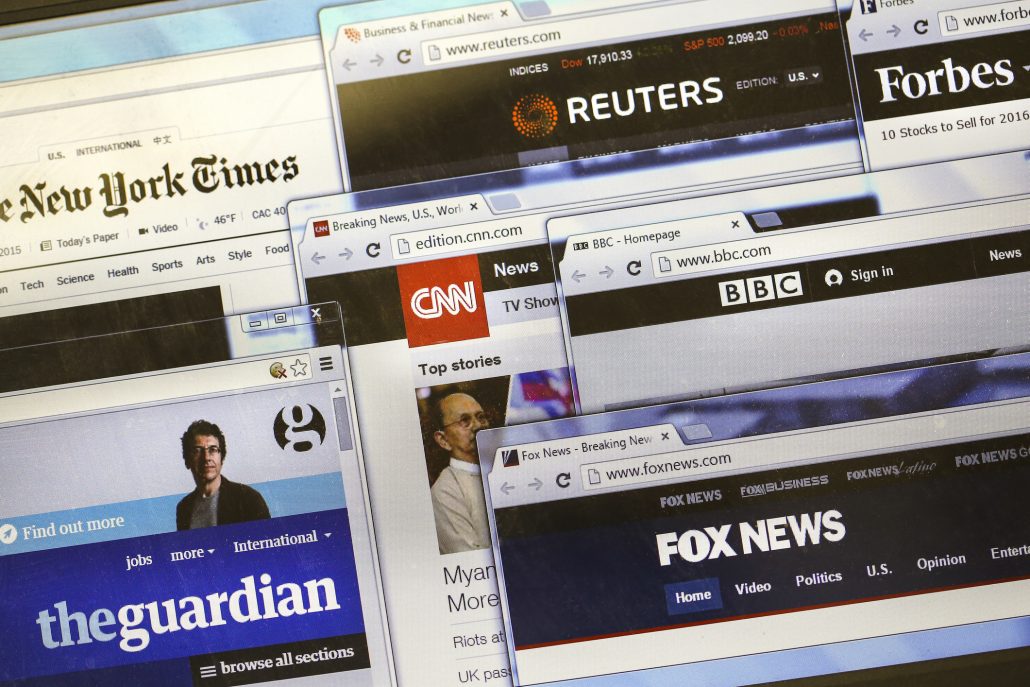
South Florida has been under a great deal of scrutiny recently, specifically concerning the issues facing the recovery community such as unethical and illegitimate sober home operators in the area. In June, there was a Megyn Kelly NBC News Investigation which focused in on Delray Beach, Florida and some of the big problems concerning unscrupulous activities from corrupt individuals exploiting drug addicts in need of help.
We took this time to look over some of the bigger stories concerning the illicit activities in South Florida with the recovery industry while showing support and gratitude for all those working together to try and put an end to operators who are taking advantage of people in need of help.
-
Palm Healthcare Measures Up to Addiction Treatment Outline for EAP

In September of 2017, we took a very close look at an article written by the Journal of Employee Assistance that was designed to help Employee Assistance Programs (EAPs) find the right kind of addiction treatment programs to recommend to their clients.
The outline given for EAPs to find effective and reliable addiction treatment options gives a list of things to look for. The Palm Healthcare Company blog was happy to show off just how all of our facilities measure up to these crucial standards.
Keep an Eye Out for More
Palm Healthcare Company continues to try and share every treatment development, news story or exciting innovation on our blog to not only help more people learn and raise awareness but to offer some perspective and maybe ask some new questions.
Whether it is sports, celebrities, news or politics we are committed to talking about important stories that pertain to drug policy in America, substance use disorder, mental health, and personal wellness. We will continue to touch on the top stories of 2018 to spread the word and hopefully inspire more people to get involved in these crucial conversations.
2017 was an intense, innovative and inspiring year. Here is to hope for 2018.
Holistic addiction treatment means incorporating every aspect of life for each individual with personalized opportunities for lasting recovery. So every bit of information can help anyone make a more comprehensive decision about what kind of recovery plan they want. If you or someone you love is struggling, please call toll-free now.
CALL NOW 1-888-922-5398
by Justin Mckibben | Dec 1, 2017 | Addiction Stigma, Donald Trump, Drug Policy, Fentanyl, Heroin, Law Enforcement, News, Opioids, Prescription Drugs

This past Wednesday, Attorney General Jeff Sessions made the announcement that White House counselor Kellyanne Conway will be the Trump administration’s go-to for opioid crisis efforts. This announcement has been met with both praise and criticism. Some say this appointment actually gives validity to the White House’s commitment to solving the ongoing opioid epidemic, while others see it as the exact opposite.
For a little background, Kellyanne Conway worked as a pollster before becoming Trump’s campaign manager during his run for the 2016 presidential nomination. Currently, Conway serves as a White House spokeswoman and Trump surrogate. She has been seen on countless panels discussing the biggest topics and politics. She absolutely has her work cut out for her, so can Kellyanne Conway compete?
The Kellyanne Cons and Pros
So can this infamous Trump advocate, the woman who practically accidentally coined the phrase “alternative facts” compete with the opioid crisis in America? Kallyanne Conway has become notorious for defending some of President Trump’s most flagrant and controversial “alternative facts” in the media. But in her defense, she also has said some things that seem to highlight important prospects for this problem.
So here are some things to consider when we talk about Kellyanne Conway being put in charge of the opioid epidemic.
Lack of Experience
One of the big problems with this appointment people are pointing out is the lack of experience. Critics say this appointment speaks to how little passion the current administration is actually putting into fighting the opioid crisis since Kellyanne Conway has no experience in public health or with drug policy.
But in a time where Americans seem to be putting more trust in people that don’t typically meet the description of “qualified” in hopes that an outsider might bring better results, it makes sense that a lot of people might still hope Kellyanne can do some good.
Yet, there are still those who aren’t so sure. Tom Synan, a police chief and member of the Hamilton County Heroin Coalition in Ohio tweeted in response to the announcement:
“Ummm… did we run out of Dr’s, cops, addiction specialists or people who are actually dealing with this on the street to lead this?”
As a first responder, Synan is one of many people who are frustrated with the current actions being taken.
“I don’t want to get involved in politics, but it seems like it is a political position … I think I would have gone out to the country and tapped into people who are national experts who are on the street who are literally dealing with this issue every day,”
It seems many on the front lines are not impressed with the Trump administration’s move to put Kellyanne Conway in charge of efforts to combat one of the worst drug problems in the nation’s history.
Publicity and Perception
During a press briefing about the Justice Department’s efforts to combat the crisis where the announcement was made, Sessions said President Donald Trump chose Kellyanne Conway to “change the perception” about opioids and reduce addictions and deaths.
According to Sessions, President Trump has made the epidemic “a top priority for his administration, including every senior official and Cabinet member.”
An opioid policy expert Andrew Kolodny of Brandeis University actually defended the move when speaking to BuzzFeed News, stating:
“It is a positive sign. She is a high-profile figure in the administration, showing the administration takes this seriously,”
Some believe this can offer a sign of hope for more concrete action since many recovery advocates say despite the declaration of a public health emergency from President Trump there has been very little action taken to change the state of the epidemic.
Bertha Madras, a member of the President’s Commission on Combating Drug Addiction and the Opioid Crisis and Harvard Medical School professor, said:
“The most important thing that Kellyanne Conway will provide is access … but also commitment… She was at all the meetings, she listened and took copious notes.”
Let’s hope those are some good notes because thus far the opioid problem in America has shown no signs of slowing down. Jeff Sessions justified the appointment by saying Kellyanne Conway “understanding messaging” and can help turn around public perception. But is this about publicity, or is it about the preservation of life?
Surely breaking the stigma and changing the way addiction is viewed does matter, but should someone who specializes in making things look good to be in charge of how this country deals with one of the most prominent crises we face?
Treatment and Resources
Kellyanne does seem to support treatment, but to what extent it is still unclear. In one interview with ABC Kellyanne Conway did say,
“Pouring money into the problem is not the only answer. We have to get serious about in-facility treatment and recovery.”
So she at least appears to understand how crucial effective inpatient treatment is for recovery.
But when reporters mentioned the fact that there needs to be funding for these programs, she put more emphasis on “a 4 letter word called will” that seems to side-step the question- where will these resources come from?
As it now stands, White House has:
- Left the leadership role of the Office of National Drug Control Policy vacant
- Failed to release any written opioid-control strategy
- Not requested funds to replenish the national public health emergency fund that currently sits at just $66,000
In fact, President Trump’s 2018 budget request would increase addiction treatment funding by less than 2%. And don’t be fooled, that increase includes the $500 million already appropriated by Congress in 2016 under the 21st Century Cures Act with the Obama administration.
Even Chris Christie, the Republican New Jersey Governor who led the White House Opioid Commission, said:
“In New Jersey, we are spending $500 million,” he said. “I am not, quite frankly, impressed with $1 billion from the federal government for the nation.”
Strict Prevention and Punishment
When you look at what she has said on record in regards to opioids and addiction, it doesn’t really inspire a great deal of confidence. Kellyanne Conway has consistently hinted to an outdated ideology of what addiction is and how to address it.
In the past, Kellyanne has said,
“The best way to stop people dying from overdoses and drug abuse is by not starting in the first place… That’s a big core message for our youth.”
That’s right; just say no.
Critics say this aligns with the mindset of Jeff Sessions and others in the White House who seem to think that ‘Just Say No’ tactics actually work, or that purely prevention-based programs like D.A.R.E. can solve the whole problem. While prevention is important, it has proven to be ineffective as a focal point when addressing addiction.
Circling back to publicity, what Ms. Conway does seem to heavily endorse is a White House investigation for a “national ad campaign” on abuse prevention. President Trump himself had voiced his own support for a national advertising initiative to try and deter drug use.
But we all remember those commercials- this is your brain on drugs- and they didn’t really help that much.
Again, it seems Attorney General Sessions and the current administration is more focused on punishment than treatment and strict law enforcement. Sessions said the Justice Department was giving more than $12 million in grants to state and local law enforcement to help them prosecute crimes connected to:
Sessions is also ordering all U.S. Attorney offices to designate opioid coordinators. Kaitlyn Boecker, Policy Manager with the Drug Policy Alliance, has been vocal in her disapproval of the current steps being taken.
“Despite declaring the opioid overdose crisis a public health emergency just last month, the Trump Administration continues to emphasize failed prohibitionist policies while ignoring proven public health measures that we know reduce overdose death, like community naloxone distribution.”
“As we feared, the Administration is using the overdose crisis as an excuse to ratchet up the war on drugs rather than an opportunity to save lives.”
At this point, we can say that the news is not without skeptics. While many are still trying to remain hopeful that maybe because Kellyanne is so vocal and such a well-known surrogate for the president that perhaps she will be able to garner more attention to the issue.
While the fight for more resources continues, we should always encourage people to seek help. There are many safe and effective treatment resources already that have been helping people recover from drug and alcohol addiction for decades, like Palm Healthcare Company. If you or someone you love is struggling, please call toll-free now. We want to help.
CALL NOW 1-888-922-5398
















